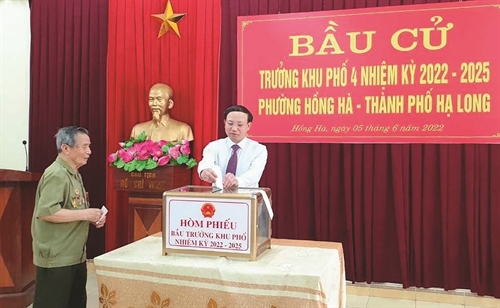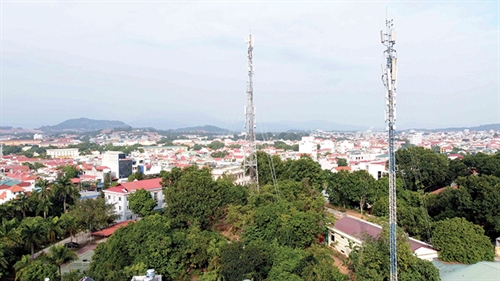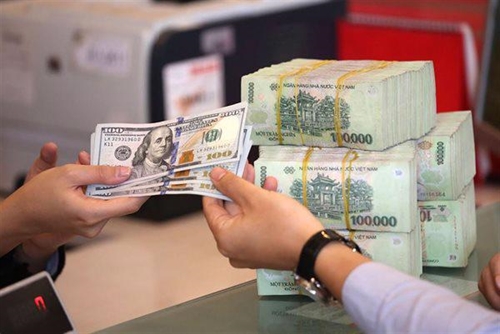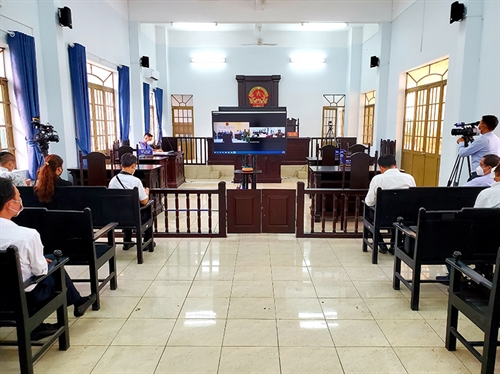Le Viet Ha
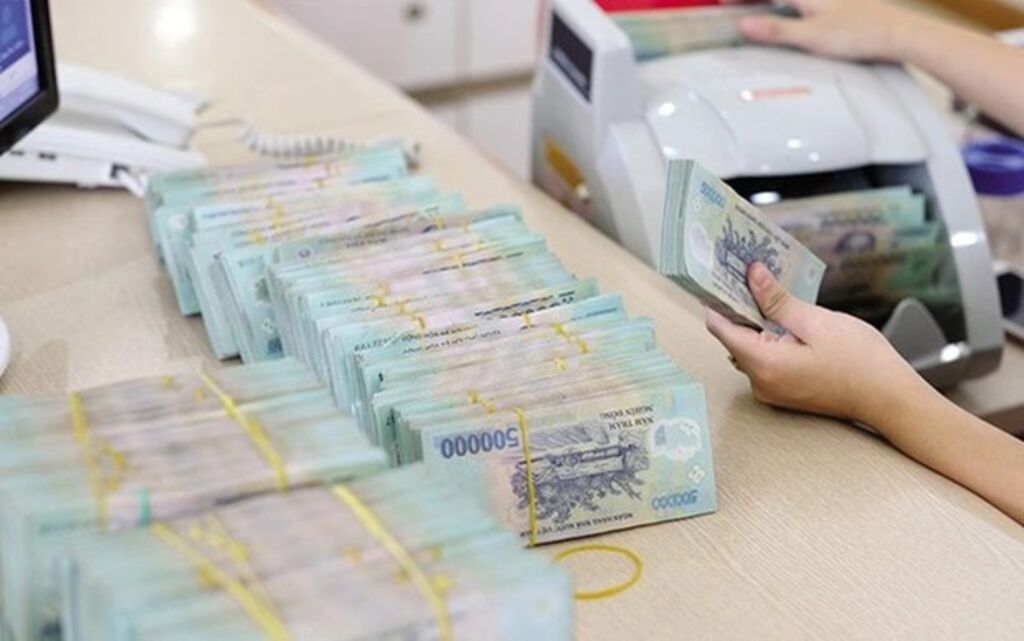 |
| Illustrative image: SBV |
Reason for the change
Vietnam has become a member of the Asia/Pacific Group on Money Laundering (APG) since 2007 in which Vietnam has committed to implement international standards on anti-money laundering, counter-terrorist financing and proliferation of weapons of mass destruction under 40 recommendations of the Financial Action Task Forces (FATF). Since 2012, the FATF’s recommendations have changed several times to handle increasingly complex evolution of financial crimes around the world. Accordingly, Vietnam’s Anti-Money Laundering Law, which was enacted in 2012 (AML 2012), can no longer catch up with new international requirements and standards.
The APG implemented the second Mutual Evaluation[1] of Vietnam during 2019-21, and the final Mutual Evaluation Report[2] of Vietnam was adopted by the APG in July 2022. The report shows that: (i) regarding the legal framework, old regulations and law still had shortcomings and did not met or only partially met 27/40 FATF’s recommendations, of these 27/40 recommendations there are 5/6 “big” recommendations; (ii) on implementation efficiency: currently there are 2/11 immediate outcomes rated at substantial level, other 2 immediate outcomes rated at moderate level, and 7 immediate outcomes rated at low level.[3] Vietnam’s legal framework on anti-money laundering, counter -terrorist financing and proliferation of weapons of mass destruction still had shortcomings and weaknesses which made Vietnam vulnerable to risks of financial crimes. With results of this multilateral assessment, Vietnam has been included in the enhanced review process following the multilateral assessment of APG and the review process of countries with serious deficiencies of FATF. Within one year, from the application of FATF’s process of reviewing countries with serious shortages (from March 2022 - March 2023), Vietnam will have to overcome the shortages identified in the Mutual Evaluation Report.
The neccesity for changing anti-money laundering law does not originate solely from external factors. Through many official documents such as the Political Bureau’s Directive 05/-CT/TW dated December 7, 2015, the National Action Plan on anti-money laundering and counter-terrorist financing for the 2021-25 period, and the Scheme on improving the effectiveness of the fight against money laundering and terrorist financing, Vietnam has shown its focus on financial crimes, particularly corruption, which is a predicate offense to money laundering.
On the basis of above foundations, a new Anti-Money Laundering Law was passed by the National Assembly on November 15, 2022 (AML Law 2022), followed by the promulgation of Government Decree 19/2023/ND-CP of April 28, 2023, and State Bank of Vietnam Circular 09/2023/TT-NHNN of July 28, 2023. Those documents replaced the AML 2012 and its guiding texts.
Changes and improvements in the AML Law 2022
Scope of the AML Law 2022: The new law inherits the provisions of the old law on measures to prevent, detect and handle organizations and individuals commiting money laundering acts, responsibilities of agencies, organizations and individiuals in anti-money laundering; international cooperation on anti-money laundering. The new law extends its scope of regulation to prevent and deter organizations and individuals committing terrorist financing and proliferation of weapon of mass destruction under this law, criminal codes, and regulations on these issues.
The extension of scope of the AML Law 2022 is in line with FATF’s 40 recommendations, and proves Vietnam’s ultimate efforts to combat terrorist financing and proliferation of weapon of mass destruction.
Reporting entities: In addition to traditional reporting entities such as financial institutions and non-financial businesses and professions, the new AML Law 2022 adds and clarifies names of reporting entities, including securities and insurances companies, prize-awarding game and casino service providers, real estate firms, etc. Specifically, investment trust service in the old AML law was changed into legal arrangement service in the new AML law which is consistent with international norms and practices. The regulations on intermediary payment service are incorporate in the AML Law 2022, instead reference to Decrees and Circulars as before.
International cooperation: This provision might be considered as one of the most remarkable development of the AML Law 2022, which specifies principles and contents of international cooperation on anti-money laundering in line with international, rules and conventions/treaties of which Vietnam is a member. On the other hand, to meet practical requirements on exchanging and sharing information, the new law allows entities to exchange or provide information under the principle of recipprocity between Vietnam and countries and jurisdictions, in case there are no international treaties or agreements on anti-money laundering between parties. The new law allows competent authorities to refuse to provide information if the counterpart cannot protect the information effectively. This addresses partial FATF’s recommendations on international cooperation.
Risk assessment:
Regarding national risk assessment: the State Bank of Vietnam (“SBV”) and related ministries are required to assess national risk on money laundering evey five years. Following the assessment, report and a proposed action plan shall be submitted to the Vietnamese Government for approval. Since criteria and methods for assessing national risks of money laundering are technical and may change from time to time, the AML Law 2022 assigns the Government to regulate principles and criteria for, and methods of, national money laundering risk assessment.
This is the first-time national risk assessment is officially regulated in the AML law. National risk assessment is considered as a ground for Vietnam’s understanding of money laundering and terrorist financing by which competent authorities and reporting entities might have a clear vision of potential risks and threats. The legislation on national risk assessment is an important movement to prove that Vietnam takes ML/TF issues seriously and wants to mitigate this.
Regarding risk assessment and update of reporting entitites, the AML Law 2022 specifies responsibilities for assessing and updating money laundering risks of reporting entities; reporting to competent state agencies and disseminating results of money laundering risk assessment and updating them through its system. Based on assessment results, the reporting entitites are required to develop money laundering risk management procedures that must include rules for customer classification by low, medium and high risk levels and relevant measures to be applied according to the customer’s risk level. The SBV Governor is authorized to guide criteria and methods of money laundering risk assessment by reporting entities.
The risk assessment helps reporting entities to identify their inherent and potential risks and threats and apply effective risk-based control. Importantly, through the risk assessment, reporting entities have the responsibility to simplify due diligence with low-risk customers. This addresses the concern of APG that Vietnam’s reporting entities were applying controlling measures on rule-based instead of risk-based.
Know Your Customer (KYC):
KYC’s requirements on people with single nationality, people with two or more nationalities, and stateless people are specified in the new law. Under the AML Law 2022, reporting entities are allowed to exploit information on national databases in accordance with laws and regulations, and to verify through state agencies information provided by customers. The term “business operation through introduction” was replaced by “third parties” or “outsourced organizations” who conduct customer information verification and due diligence activities on behalf of reporting entitites, and the third parties must satisfy several conditions, especially confidentiality obligations. Reporting entities also have new responsibility to understand “nature of business relationship between customer and the reporting entities” which is added along with the current requirement of “purposes to set up the business relationship with the reporting entity” as required among KYC information.
A new point relating to KYC is about correspondent banking relationship, reporting entities now have to apply methods to collect customer identification information. Reporting entities must also ensure that their correspondent banks apply required due diligence when establishing relationship with the correspondent banks. These were considered as deficiencies of Vietnam under Recommendation No. 13[4]. However, the new law completely addresses this Recommendation under APG’s MER.
The AML Law 2022 broadens the scope of politically exposed person (“PEP”) to include foreign individuals with political influence who hold senior positions in international organizations, in addition to the senior positions in organizations and bodies of foreign countries. Responsibilities to verify source of wealth of customers and beneficial owners as foreign PEPs are more clearly specified in the new law.
Responsibilities when releasing new products/services:
Reporting entities are required to issue policies and procedures to identify and assess level of money laundering risk of new products, and current products and services using new technology before launching them. AML Law 2022 also requires reporting entities to apply necessary measures to mitigate money laundering risks. The new provision complies with requirements under criterion 15.2 on the risk assessment before launching new technology on existing products and new products.[5]
Transparency of information of legal arrangement and not-for-profit organizations:
The AML Law 2022 separates regulations on legal arrangement and not-for-profit organizations into two articles in which specify and supplement some requirements for these subjects.
Regarding legal arrangement, trustees have responsibilities to collect and record information of settlers, trustees, beneficiaries and relating parties (if any), and natural persons who exercise the ultimate control over the trust, while reporting entities have rights to require trustees to provide such information in the process of establishing and maintaining customer relationships.
Definition of not-for-profit organizations (NPO) has been supplemented in the new law. They are organizations that operate not for the profit-making purposes, including foreign non-governmental organizations, social funds, charity funds, religious associations and organizations established and registered in accordance with Vietnam’s laws and regulations. These NPOs currently are required to collect, update, and store records on funding and receipt of funding from NPOs and provide them to competent authorities upon requests.
Suspicious transaction report:
Requirements to report suspicious transactions provided in Decree 116/2013/ND-CP[6] in now incorporated in the new law with modifications. These requirements include (i) when reporting entities learn/have reasonable grounds that the transaction is conducted at the request of the accused, the defendant or the convicted person; (ii) assets in transactions related to money laundering are determined from reviewing, collecting and analyzing information when customers or transactions show one or more suspicious signs specified in the new AML law.
The AML Law 2022 specifies suspicious signs in each field in separate articles instead of combining them into one article as in the old law. The case when customer refuses to provide information or requests reporting entity to conduct transactions that do not comply with order and procedure currently specified by law might be considered as basic suspicious signs. Due to the recent development of intermediary payment service, law-makers for the first time set out a list of suspicious signs in the provision of this service which requires intermediary payment service providers to provide clear guidance and monitore and report on suspicious transactions. The new law also lists two new suspicious signs in banking industry, and regulates more clearly suspicious signs of other sectors such as insurance, gaming and casino businesses, and real estate business. The SBV is authorized to update and supplement suspicious signs for different industries and sectors in order to meet requirements on anti-money laundering from time to time, and submit them to the Government for approval.[7]
Time limit for reporting suspicious transactions is one of the most discussed topics when drafting the new law. The reporting timeframe is extended from 48 hours to 3 working days from the time the transactions are generated; and to 1 working day from the date the reporting entities detect a suspicious transaction, which gives reporting entities more time to investigate.
Form of suspicious transaction report have changed significantly in Circular 09/2023/TT-NHNN in which suspicious transaction reports may take one of seven new forms applied for seven sectors of reporting entities. The seven sectors include banking and financial institutions; intermediary payment service providers; life-insurance business; security trading organizations; real estate business; prize-winning games (prize-winning electronic games, games on telecommunication networks and the internet, lottery, betting); non-financial business (except organizations dealing in real estate and prize-winning games). The new forms also require more customer information and request detailed information on transactions such as inflow and outflow of money, counterparty’s banks, total number of transactions, time of transactions, and transaction message, etc. By these new forms, it is expected that upcoming STR will be improved in terms of both quality and quantity among businesses in all applied sectors.
Temporary measures:
The AML Law 2022 clearly specifies circumstances of postponing transactions, including: (i) there are grounds to suspect or detect that the parties involved in transactions are on the Black List; (ii) there is a reason to believe that the requested transaction is related to criminal activities, including: transactions requested by a convicted person under the criminal codes and assets in the transactions are owned or originated under the ownership or control of the convicted person; transactions related to organizations and individuals committing terrorism financing crimes; (iii) it is requested by a competent state agency in accordance with relevant laws. In addition, the new law requires reporting entities to report “immediately” when applying postponing measures, which is to implement proposed actions of APG.
Independence of the Anti-Money Laundering Department
The AML Law 2022 removes prevention and anti-money laundering tasks from the Banking Supervisory Agency. The SBV has proposed separating the Anti-Money Laundering Department (AMLD) from the Banking Supervisory Agency which will bolster the independence of AMLD as Financial Intelligence Unit (FIU) of Vietnam. This effort is to conform to international standards and ensure independence of Vietnam’s FIU in line with requirements of FATF.-
[1] FATF mutual evaluations are in-depth country reports analysing the implementation and effectiveness of measures to combat money laundering and terrorist financing. Mutual evaluations are peer reviews, where members from different countries assess another country. A mutual evaluation report provides an in-depth description and analysis of a country’s system for preventing criminal abuse of the financial system as well as focused recommendations to the country to further strengthen its system.
[2] The mutual evaluation report is an assessment of a country's measures to combat money laundering and the financing of terrorism and proliferation of weapons of mass destruction. This includes an assessment of a country's actions to address the risks emanating from designated terrorists or terrorist organisations.
[3] Vietnam’s Mutual Evaluation Report issued by the APG dated in July 2022.
[4] Recommendation 13 - Correspondent banking, Vietnam Mutual Evaluation Report 2022, page 158.
[5] Criterion 15.2, Recommendation 15 - new technology, Technical Compliance Annex, the Vietnam Mutual Evaluation Report 2022, page 161.
[6] Decree 116/2013/ND-CP dated October 4, 2013, on guidance to implement the AML Law 2012.
[7] Article 26.3, the AML Law 2022.





